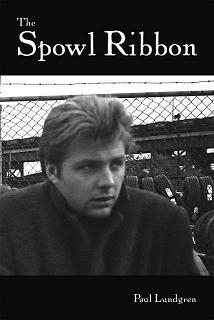Bible Translation: Story of Creation
 In the beginning, God created the universe. Before that, there was nothing — not even an infinite galaxy of darkness, which would be something. God must have been around before the beginning, but it’s not something he likes to talk about.
In the beginning, God created the universe. Before that, there was nothing — not even an infinite galaxy of darkness, which would be something. God must have been around before the beginning, but it’s not something he likes to talk about.
At first the earth was without form. Everything was dark and void. This was apparently depressing to God, so he said, presumably to himself, “Let there be light!” And a light appeared. It wasn’t the sun, though. God waited a few days to create the sun. At this moment he needed a special light for creating other things before the sun.
When God saw this light, he thought it was good. It wasn’t too dim or too bright. No adjustment was necessary. God decided to separate the light from the darkness, though, calling them “day” and “night.” Apparently they were all tangled up at first, causing a sort of swirl effect.
On Tuesday God decided to divide the waters, so he said, “Let there be a firmament in the midst of the waters, and let it divide the waters from the waters.” God called the firmament “heaven.” Many years later, people on earth would start calling it “outer space.”
On Wednesday God gathered the waters on earth together in pools, so dry land could appear. He said, “Let the earth bring forth grass, the herb yielding seed, and the fruit tree yielding fruit after his kind, whose seed is in itself, upon the earth.” He had a way with words.
By Thursday God was unsatisfied with the light he previously let be. So he said, “Let there be lights in the firmament of the heaven to divide the day from the night; and let them be for signs, and for seasons, and for days, and years: and let them be for lights in the firmament of the heaven to give light upon the earth.”
This was strange, because God was already using the other light to count days and nights. Nonetheless, a spinning ball of very hot gas fueled by nuclear fusion reactions appeared about 93 million miles away. God called it the “sun,” and ordered it to rule the day.
To rule the night he created a lesser light, called the moon, along with many, many stars. God set these lights in the firmament of the heaven, then took a look around and saw that it was good. All that was needed was some life to appreciate the new scenery.
In four days God created the earth and separated the water from dry land. He created heaven, the sun, the moon and the stars. He had looked on all of it and saw that it was good. Things were shaping up nicely heading into the weekend.
On Friday God said, “Let the waters bring forth abundantly the moving creature that hath life, and fowl that may fly above the earth in the open firmament of heaven.” This command brought forth many creatures that swim and fly. Hunting and fishing season wouldn’t start until Saturday, though.
God blessed the fish and fowl, telling them to, “Be fruitful, and multiply, and fill the waters in the seas.” He looked at the lower part of the food chain, and saw that it was good. With the right spices, it would later prove delicious.
On Saturday God said, “Let the earth bring forth the living creature after his kind — cattle and creeping thing, and beast of the earth.” And so it was that creeping beasts were born of the earth.
“Let us make man in our image, after our likeness,” God said next. He obviously didn’t need help from his creatures to spontaneously generate new life forms, so it can be concluded that God began talking to himself in the plural or “editorial we” at this time.
And so God created mankind in his own image. It wasn’t a physical image, of course, because God has no body. He created the first man with an immortal soul resembling his, and he granted mankind dominion over the other creatures. Those creatures, by the way, had no souls but were blessed by God anyway.
“Behold,” God said, “I have given you every herb bearing seed, which is upon the face of all the earth, and every tree, in which is the fruit of a tree yielding seed; to you it shall be for food.”
God looked upon everything he had made and saw that it was good, which couldn’t have been much of a surprise. Beholding a job well done, he decided to take Sunday off and contemplate what he had done. He blessed this day off and sanctified it, so that humankind should also rest on Sunday and honor his work.
That’s why, to this very day, people don’t work on Sundays unless they are part of the lower class and are unable to find employment that doesn’t require them to serve those who have the day off.
 Paul Lundgren is author of The Spowl Ribbon, a book that does not contain Bible translations. This article first appeared in the Transistor.
Paul Lundgren is author of The Spowl Ribbon, a book that does not contain Bible translations. This article first appeared in the Transistor.
Recommended Links:
Leave a Comment
Only registered members can post a comment , Login / Register Here














No Comments